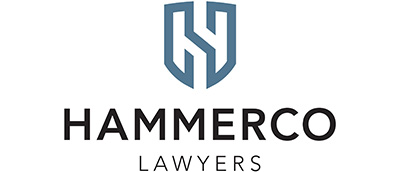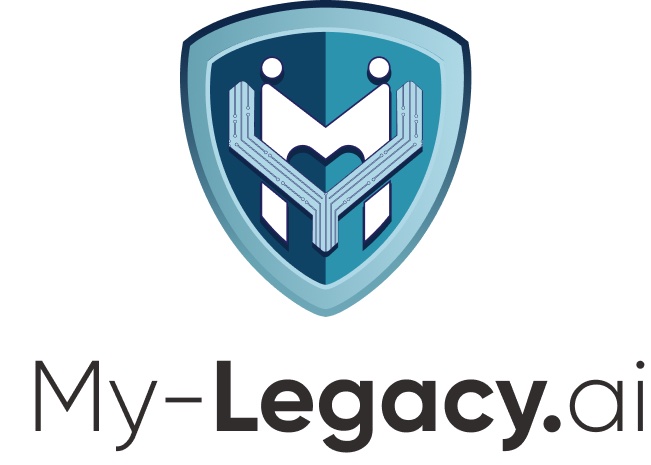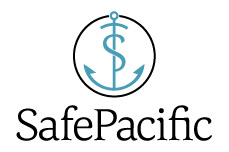By Lucy Saddleton, Managing Editor, ADB Insights
Estates professionals in British Columbia face their own unique set of challenges, driven by evolving provincial laws and legislation, together with shifts in client needs and expectations and family structures.
On May 30th, speakers at the Legal Innovation Forum’s fifth annual British Columbia Estates Forum took a deep dive into the key themes shaping the future of the BC estates ecosystem to facilitate a better understanding of the opportunities and the challenges facing British Columbian practitioners managing estates today.
We brought together lawyers, accountants, financial planners, insurance specialists, technology experts, and trustees to drive communication and collaboration between professionals navigating the complex estate landscape in BC.
INTRO TO WESA & CASE-LAW UPDATE
Our opening session with Hammerco Lawyers partner Krista Simon, and Hammerco associate Raman Dasanjh-Samra, provided a brief overview of the Wills, Estates and Succession Act, and reviewed the latest developments in case law by citing specific examples of recent cases:
Franco v. Franco Estate, 2023 BCSC 1015: Gifts versus a resulting trust
- Case deals with transfer of assets prior to death to an adult, independent child
- Question of whether the transfer is a gift or should it be held in trust by the child for the benefit of the estate
- In order to be a legally binding gift, the donor must have intended to make a gift at the time of transfer, and the donor must have delivered the gift to the donee (completed the gift)
- In this case, the court ultimately decided it was a complete gift
Bush Estate (Re), 2024 BCSC 375: Undue influence
- Case examines the factors that raise a specific and focused suspicion of undue influence in writing a will
- Initial will divided an estate equally between a large number of nieces and nephews, while a second will left only $5,000 to each respondent, with the remainder being left to the executor (a niece)
- In order to prove a will is valid, the propounder must prove the will was executed in compliance with statutory formalities, the will-maker knew and approved of the contents of the will, and that the will-maker had testamentary capacity
- The court decided there was not enough evidence to rise to the level of suspicious circumstances
Gil v. Gil, 2024 BCSC 526: Dismissing a grant of probate
- Case deals with the circumstances in which probate is dismissed
- Deals with the duties of the executor to ensure notice is given and is proper for a grant of probate
- Section 121 of WESA sets out that a person applying for a grant of probate has to give notice of the application to the people who are listed
- In this case, the court found that notice was not given because although notice was sent to the house, the executor did not rightfully expect it to be received since the testator’s son was living in Mexico and therefore unlikely to see mail sent to the family address in Canada
Sinitsin Estate, 2024 BCSC 534: Will variation claims
- The deceased party divided her estate between her children and grandchildren
- One of the adult children made a will variation claim, claiming that the distribution did not make adequate provision for his financial needs
- There is no moral obligation to grandchildren
- In will variation claims, the court looks at a number of factors to balance moral obligations with the wishes of the testator
- In this case, the court determined that the deceased had satisfied her moral obligations, and provided for her son over his lifetime
Rawji Estate (Re), 2023 BCSC 1652: Removing an executor
- The court ordered the removal of an executor from his deceased mother’s estate in a case where the relationship between parties was acrimonious
- WESA allows for the removal of a personal representative of the estate if the court considers that they should not continue
- However, pre-existing hostility between an executor and beneficiaries does not necessarily disqualify the executor from performing their duties
- In this case, the court found that the executor should be removed, and selected an independent trust company.
Razafsha v. Heidary, 2022 BCSC 1357: Who is spouse?
- Case centres around a deceased woman who died by suicide and had been living in a same-sex relationship, although they had a separation agreement
- The deceased had no will and her only living relative was her sister
- The court had to determine if the applicant was the spouse of the deceased under WESA, and whether or not the relationship had terminated
- Under WESA, two people are considered spouses if they were both alive immediately before the relevant time, and they were married to each other or lived with each other in a marriage-like relationship for at least two years
- The court found that this was a spousal relationship, and that the separation agreement was only a financial separation

UNDERSTANDING EVOLUTIONS IN TRUST
Trusts can be a valuable tool in estate planning, allowing for the secure transfer of assets, but navigating this complex landscape can be challenging.
In our second session, Steve Ivacko, partner, family office services at accounting firm MNP joined Andrew Bowyer, CEO and founder at ADB Insights for a fireside chat about different types of trusts, how to use them in estate planning, and when to challenge them.
Ivacko noted that it can be beneficial to freeze the value of a business at a specific point in time and put the growth into a family trust through which the growth can accrue to other family members.
“That also has the benefit of freezing the initial owner’s tax bill so you can mitigate what their tax bill is going to be on their passing,” said Ivacko.
“If there is a business that gets sold, that has a trust as a shareholder, you can multiply a lifetime capital gains exemption among a group of people, as opposed to just an original business owner, so there’s a lot of different benefits in my mind, for the use of trusts,” he added.
Bare trusts can be useful for estate planning, probate savings and estate administration, in Ivacko’s view, but be sure to use a lawyer to draft the document and ensure it is paid for properly, he advised. If it is a gift, you must specify that it is a gift in your estate planning documents.
As of June 25, 2024, the capital gains inclusion rate will increase from one-half to two-thirds on capital gains realized annually above $250,000 by individuals and on all capital gains realized by corporations and most types of trusts.
“A lot of people are scrambling to do planning and trying to figure out what to do, but there’s no rulebook yet,” said Ivacko. “If there are growth shares in a family trust, or an alter ego trust as well, that would actually apply, I believe, so people are making decisions quickly.”
OVERVIEW OF TECHNOLOGY IN PRACTICE
Technology has long been an essential tool for estate practitioners. The recent meteoric rise of generative AI has opened the door to new opportunities for efficiency and increased productivity.
Our expert panelists in this session explored the latest offerings in Gen AI and examined how it can enhance the estate practice and boost the bottom line for estate lawyers.
The significance of the impact of Gen AI on the legal sector cannot be overstated, according to Andrew Terrett, founder and CEO at Andrew Terrett Consulting Ltd.
“I’ve been in technology for close to 30 years now, and in my career this is probably the most significant technology that I’ve seen coming into a law firm,” said Terrett, adding that Gen AI is “as significant as the introduction of the World Wide Web, back in the 1990s.” Although users must be wary of hallucinations that can occur with Gen AI, it still has huge power, Terrett said.
Terrett advised law firms that have not yet ventured into the Gen AI space to start by experimenting with Chat GPT.
Estate planning and administration platform Appara.ai can assist estates lawyers through its automation capabilities, by producing wills, powers of attorney and other testamentary documents quickly and accurately.
Although Appara has not yet integrated Gen AI into its system, it is just a matter of time, according to Dagney Benton, head of business, estates at Appara.
“Our intention is to bring generative AI in just to assist even further in preparation of those documents,” said Benton.
However, Benton noted that Gen AI will not replace the role of lawyers. “It is not our intention to take over the lawyer’s job by any means,” she said. “The lawyer still has to gather information and provide that advice to the client, but we can help to produce that documentation.”
Sree Chintala has been in the estate space for many years and recently launched an AI platform estate-planning tool called My-Legacy.ai which helps lawyers in the space, and also helps to educate consumers.
“Adoption for estate planning is abysmally low because education for consumers hasn’t been addressed yet,” said Chintala. “We help consumers to understand what estate planning is and what they need to do for their specific scenario or profile, how long it would take and approximate costs.”
Intake can often be a slow, onerous problem for estate planners but technology can significantly simplify the process.
Appara’s automated system sends reminders to clients to return emailed questionnaires, for example.
“The intake process involves getting the information from the client, and then being able to do something with that information, which is the time consuming part a lot of the time, so we’re hoping that we can automate it for people,” said Benton.
My-Legacy.ai applies artificial intelligence to optimize customer engagement and then matches clients to the right lawyer. The platform also helps lawyers by automating repetitive tasks and simplifying the intake process.
“Our research shows that almost 60-to-70 percent of attorneys give 20 or 30 minutes of free time on the first call, and often it’s not the right customer so billable time is lost,” said Chintala. “We can find the right customers through our platform and advance them into the next phase so this will actually optimize billing time.”
Speakers agreed that practitioners should embrace innovation and not fear change.
“It starts with experimentation, but before that, the leadership within law firms has to give permission for experimentation. It really does start with the tone from the top,” said Terrett.

VIRTUAL SIMULATION - UNWINDING A COMPLEX ESTATE
Our final session featured a roundtable of estate advisors examining various scenarios that can arise during the unwinding of a complex estate, in our virtual simulation.
Speakers:
- Steve Ivacko, partner, family office services, MNP
- Laurent Munier, partner, Safe Pacific Financial
- Mikis Manolis, legal counsel at Hammerco Lawyers
- Michael Poznanski, partner, BTM Lawyers
- Krista Simon, partner, Hammerco Lawyers (Chair)
VIRTUAL FACT PATTERN:
- Pat & Chris were married in their thirties
- Chris is a doctor earning $200,000
- Pat is an accountant earning $150,000
- They own a house valued at $1.8-million (mortgage of $1.4-million)
- Investments and pension: $60 – 150,000
- Monthly running costs: $15,000
- Chris and Pat have two children, one of whom has special needs
Speaker observations:
- Pat & Chris should have a life insurance plan including critical illness and disability insurance (recommend two times income for critical illness insurance)
- Set up RDSP for the child with special needs
- Pat & Chris should both be saving for retirement
- They should have basic wills with a named guardian in place for the children. Pat and Chris are each other’s beneficiaries with children as contingent beneficiaries
- Wills should include a disability trust
- Ensure the house and other assets are secured with designated beneficiaries
FACT PATTERN UPDATES:
- Chris dies at age 40 after a six-month illness
- There is a will
- Chris and their siblings were the beneficiaries of a family trust
Speaker observations:
- Chris and Pat benefited from disability insurance and critical illness during the six-month illness
- Life insurance pays out to Pat after Chris’ death
- After Chris’ death, Pat should revisit lawyers to update their will and other documents
- Will Chris’ children benefit from the family trust? Is Pat the trustee?
FACT PATTERN UPDATES:
- Pat gets remarried at age 45 to an older person – Terry
- Terry is wealthy and has three adult children who are close in age to Pat
- Pat and Terry have mostly separate finances
Speaker observations:
- Pat and Terry should get a prenup
- They should consider tenancy in common planning around the house, and consider a spousal trust or joint partner trust with protections in place
- Creating multiple trusts: ie Terry could divide assets into one trust for Pat’s benefit on Terry’s passing, and a separate trust, or direct gift to Terry’s kids on his passing. A corporate trustee would be helpful in this scenario
- Pat should take out more life insurance as her children are still minors
FACT PATTERN UPDATES:
- When Pat is in her 50s, Terry has a stroke and dies four months later
- Terry had a will that was executed while at home, near the end of life
- Terry left 90% of his $15-million estate to his housekeeper Sandy, with Pat getting 10%, and Terry’s children getting nothing
- The will had been drafted by Sandy’s advisor
- Sandy announces that Terry is the father of her 25-year old child (with DNA test evidence)
Speaker observations:
- Litigation issues: Questions will arise about capacity and undue influence around the new will
- Importance of communication between advisors, particularly when there are complex assets and multiple parties involved
- Terry’s estate may face significant tax liability on his death, so hopefully he was insured to cover this. The insurance could also be used to equalize beneficiaries
- After Terry’s death, Pat should consider probate planning, and also some some litigation tactics such as creating an alter ego trust
The webinar was moderated by Krista Simon, partner at Hammerco Lawyers, and Andrew Bowyer, founder and CEO at ADB Insights.










